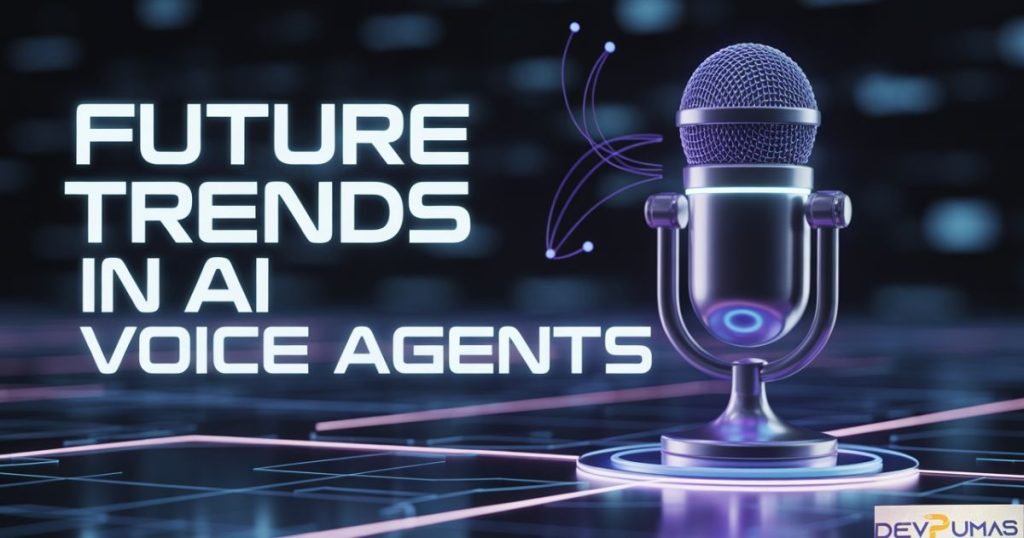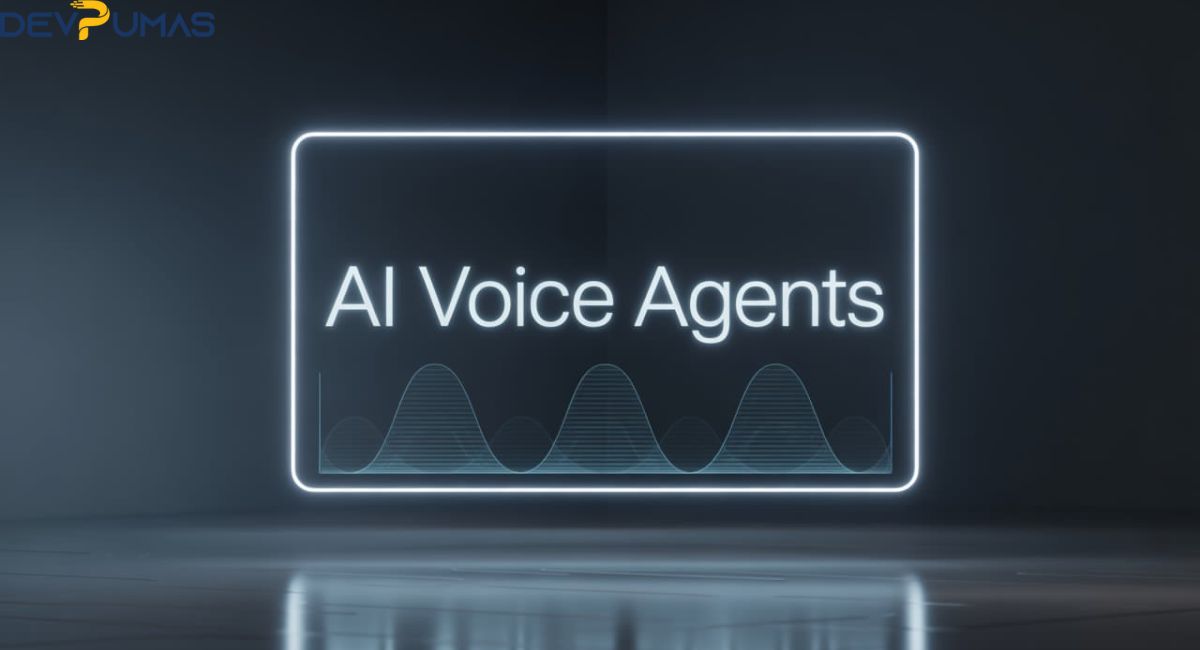In today’s fast-paced digital world, AI voice agents are transforming how businesses interact with customers. These advanced systems use speech recognition technology, conversational AI, and AI-powered call center solutions to provide seamless and natural communication. Unlike traditional support tools, they enable real-time AI conversations, handle inquiries, and manage tasks without human intervention. From virtual receptionist AI to enterprise workflow automation, these voice-based tools are improving efficiency across industries. With AI-driven dialogue management and machine learning for speech, companies can deliver natural conversations with AI while ensuring compliance with standards like HIPAA and GDPR. Simply put, AI voice agents are the future of smarter, scalable customer engagement.
What Are AI Voice Agents?
An AI voice agent is a digital assistant that understands human speech, processes it, and responds naturally in real time. Unlike older systems, these agents use conversational AI models to mimic the flow of a real human conversation. They are more advanced than chatbots because they respond to voice, not just text. With speech-to-text (STT), text-to-speech (TTS), and AI-driven dialogue management, these systems can provide real-time AI conversations across industries.
The role of AI voice agents has expanded rapidly in the USA, from customer service lines to virtual receptionist solutions for small businesses. With enterprise workflow automation and omnichannel AI support, companies can deliver seamless experiences without delays. They reduce pressure on human workers and offer AI-powered compliance automation, following rules like HIPAA, GDPR, and PCI DSS.
How Do AI Voice Agents Work?
The core of an AI voice agent is a loop of three steps: listening, understanding, and responding. The listening part uses machine learning for speech with speech recognition technology that converts spoken words into text. The understanding stage is powered by retrieval-augmented generation (RAG) and generative AI voice models (STT → LLM → TTS), which allow the system to analyze meaning and intent. Finally, the responding step converts text back to speech using TTS systems, producing a voice reply that feels natural and human.
To make this work, AI-driven virtual assistants rely on enterprise CRM integration and enterprise automation tools. This ensures they can access databases, customer records, and scheduling systems. For example, an AI-powered appointment scheduling system in healthcare can instantly confirm a patient’s slot while keeping full compliance with privacy rules.
Key Features of AI Voice Agents
One of the strongest features of an AI voice agent is its ability to handle multilingual AI support. This allows businesses in the USA to serve diverse populations without language barriers. These systems also provide intelligent call routing that connects customers to the right department instantly.
Another important feature is sentiment detection in AI voice systems, which can sense if a customer is frustrated or satisfied. Combined with AI call center technology, this feature helps businesses adjust tone and responses to improve service quality. A comparison below shows why these agents are better than older systems:
| Feature | AI Voice Agents | Traditional IVR Systems |
| Conversation Style | Natural conversations with AI | Menu-driven, robotic |
| Languages | AI-powered multilingual support | Limited |
| Integration | Enterprise CRM integration | Very basic |
| Personalization | AI-driven dialogue management | Static responses |
Difference Between AI Voice Agents and Traditional IVR Systems
AI vs IVR systems is a key discussion in business automation. IVR systems rely on button presses or menu choices, which often frustrate customers. In contrast, AI voice agents understand intent directly through voice. This creates voice-based AI solutions that adapt to real needs.
The second major difference is scalability. AI-powered call center solutions can serve thousands of calls at once without wait times. With customer service automation, businesses don’t need huge teams of operators, yet they provide better service than outdated IVR menus.
Benefits of AI Voice Agents in Businesses
The first benefit of an AI voice agent is business automation with AI, which lowers costs by reducing repetitive manual work. Call centers in the USA that once needed hundreds of workers now handle calls with AI call center technology. Companies save money while providing faster responses.
The second benefit is customer satisfaction. With AI in customer support, clients no longer wait endlessly on hold. They enjoy real-time AI conversations, quick resolutions, and AI-powered multilingual support. Studies show that businesses using AI-powered call center solutions see higher retention and loyalty.
AI Voice Agents Use Cases Across Industries
In voice AI in healthcare, hospitals use AI-powered appointment scheduling and reminders to reduce no-shows. These systems are HIPAA-compliant and ensure patient data security. In banking and finance AI bots, customers check balances, report fraud, and even receive loan updates without waiting for an agent.
E-commerce platforms benefit through AI for sales and lead qualification. Retailers use AI in insurance claims automation to process policies faster. Emergency services use AI-powered emergency dispatch to manage calls quickly. These use cases show how AI-driven virtual assistants create value across industries.
AI Voice Agents vs Human Receptionists
A virtual receptionist AI offers 24/7 service, instant responses, and consistency. Unlike humans, they never take breaks, and they manage enterprise workflow automation without error. Businesses get cost efficiency and reliable service.
However, human receptionists excel at empathy, tone, and emotional intelligence. While AI-powered multilingual support ensures clear communication, some sensitive conversations still require human understanding. The future is not replacement but collaboration, where humans handle emotions and AI-driven dialogue management handles routine tasks.
Challenges and Limitations of AI Voice Agents
One challenge is language variety. Even with multilingual AI support, strong accents or slang can confuse speech recognition technology. Privacy is another issue since businesses must ensure compliance in AI voice systems (HIPAA, GDPR, PCI DSS).
Cost is also a barrier. Small businesses may struggle with the high setup cost of AI call center technology. Additionally, sentiment detection in AI voice systems is still imperfect, meaning agents sometimes miss emotional cues.
Steps to Build and Deploy an AI Voice Agent
The first step is defining goals. A hospital may want voice AI in healthcare, while a bank may deploy banking and finance AI bots. Once goals are clear, businesses select the right enterprise automation tools or providers.
The next step is training. Using machine learning for speech and conversational AI models, companies feed the system real-life data. After pilot testing, the agent is rolled out with AI-powered compliance automation. Over time, feedback improves accuracy and efficiency.

Future Trends in AI Voice Agents
The future of AI voice agents lies in deeper personalization. With generative AI in enterprises, agents will handle context-rich conversations. Generative AI voice models (STT → LLM → TTS) will make voices sound even more human.
Another trend is AI-powered multilingual support linked with smart devices and IoT. Businesses in the USA will adopt AI-powered emergency dispatch systems, and enterprise workflow automation will grow. By 2025, AI-powered call center solutions may replace most IVR systems completely.
FAQs
What are voice agents?
Voice agents are AI-powered virtual assistants that use speech recognition technology to handle calls, answer queries, and support customers.
How much do voice acting agents cost?
Costs vary widely, but professional voice acting agents usually charge commission fees between 10%–20% of a talent’s income.
How to make a voice AI agent?
You can build a voice AI agent by combining speech-to-text (STT), large language models (LLMs), and text-to-speech (TTS) systems.
How much is AI voice agents?
Pricing depends on features and usage, but AI call center technology solutions can range from $50 to several thousand dollars monthly.
Which AI is best for voice?
Top choices include ChatGPT voice models, Amazon Alexa, Google Dialogflow, and Microsoft Azure AI speech solutions.
Conclusion
The rise of the AI voice agent is a turning point for business communication in the USA. From customer service automation to AI in insurance claims automation, companies are reshaping their operations with AI-powered call center solutions. With enterprise CRM integration, AI-driven dialogue management, and AI-powered compliance automation, businesses can scale like never before.
Looking ahead, AI-driven virtual assistants will not replace humans but will work alongside them. The future of voice-based AI solutions is brighter than ever, with business automation with AI offering speed, cost savings, and better service. Companies that start now will lead in the era of real-time AI conversations.


